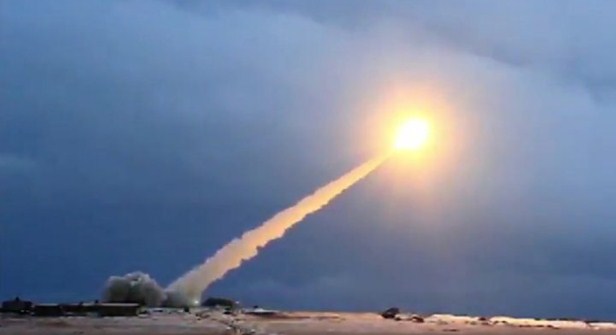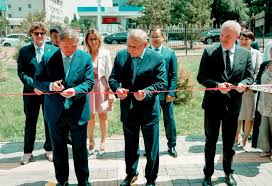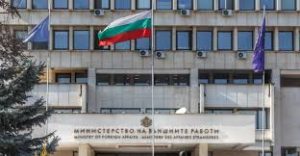Russia says rocket explosion caused 16-fold radiation spike

The Nyonoksa test range dates back to Soviet times – the hoarding stands near a naval barracks
Radiation levels near the site of a deadly rocket explosion in Russia’s far north spiked 16 times above normal, Russia’s weather service has said.Rosgidromet measured radiation levels in the port city of Severodvinsk after the blast.The explosion happened off the coast of the city at a military facility in the White Sea last Thursday.
Russia’s state nuclear agency, Rosatom, said a nuclear-powered engine was being tested.Five of its scientists were killed and three injured in the accident, near the village of Nyonoksa, the agency said.
A reading of 1.78 microsieverts per hour was detected at one station, well above normal but below dangerous levels. Even at these levels, the radiation would pose little damage to humans, according to nuclear experts.The weather service’s findings contradict initial reports form Severodvinsk officials.
Authorities in Severodvinsk, 47km (29 miles) east of Nyonoksa, said that radiation levels shortly after the blast were higher than normal for about 40 minutes but returned to normal. In contrast, Rosgidromet said the spike lasted for two-and-a-half hours.
The explosion sparked panic among locals, with some rushing to buy medical iodine, which can limit the effects of radiation.Pharmacies’ stocks of iodine were reported to be running out in the cities of Arkhangelsk and Severodvinsk.On Tuesday, Kremlin spokesman Dmitry Peskov declined to elaborate on the details of the test, only telling reporters “accidents, unfortunately, happen”.
He said, however, that Russia’s nuclear engineering sector “significantly outstrips the level that other countries have managed to reach for the moment”.





